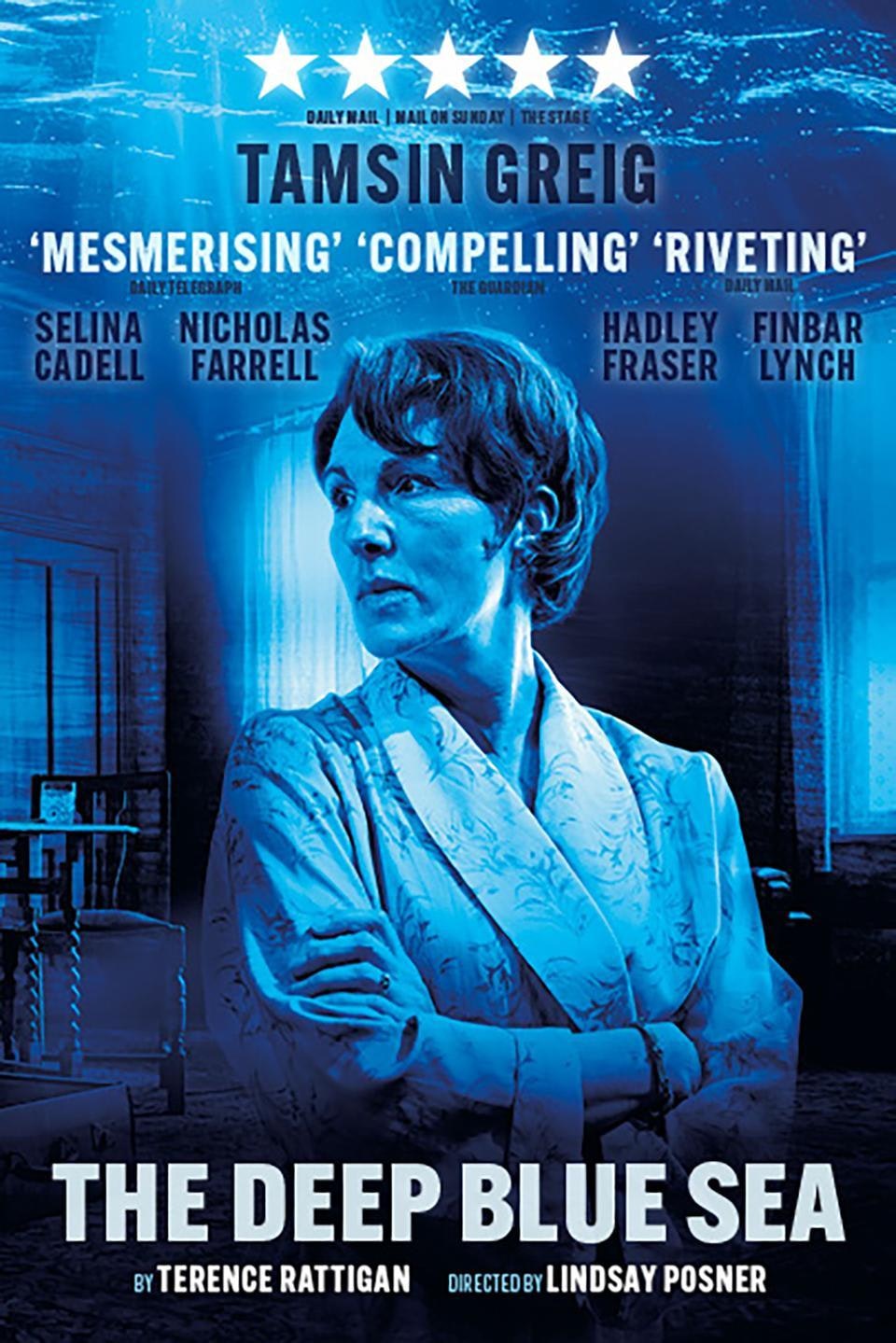This article is taken from the July 2025 issue of The Critic. To get the full magazine why not subscribe? Right now we’re offering five issues for just £25.
Nearly 50 years after his death, Terence Rattigan appears to be having one of his periodic revivals. 2025 has seen a national tour of two of his one-act plays, his masterpiece The Browning Version and the lesser-known Table Number Seven, and the indomitable Rattigan Society is campaigning to have a West End theatre named after him: a campaign that, as this magazine’s theatre critic, I gladly endorse.
And now, through serendipity rather than planning, two of the maestro’s plays have just arrived in London. One is a big, starry Theatre Royal Haymarket production of perhaps Rattigan’s most famous work; the other is the estimable Orange Tree’s staging of a rarity that I’ve never seen before. How do they both hold up?
Lindsay Posner’s staging of The Deep Blue Sea comes to the capital after a successful and much-lauded run at the Bath Theatre Royal, that great repository of classical theatre. It is the highest compliment I can pay to Posner’s production that this is about as straightforward a version of Rattigan’s 1952 play as I can imagine, entirely dispensing with modishness, wokery or any other kind of tiresome revisionism.
It is pretty much as I imagine its premiere must have been, complete with Peggy Ashcroft as the lovelorn and suicidal judge’s wife Hester Collyer, adrift in a frowsy Ladbroke Grove boarding house. (Full credit must go to Peter McKintosh, whose set design beautifully conveys the sense of a place where you’d really rather not linger unless you were forced to.)
Tamsin Greig plays Hester and does so superbly. I had my doubts about her casting going in. Greig enjoys a high reputation as a comedienne, but I was unsure whether she could efface the much-missed Helen McCrory in the play’s last major London revival at the National in 2016.
Yet Greig not only brings out the wit and wryness of Hester — there are more laughs here than you might expect — but has an ironist’s relish at her situation. Her character lives hand-to-mouth, painfully in love with her younger inamorato Freddie Page (Hadley Fraser), a former fighter ace of whom it is said, not unkindly, “life stopped for him in 1940”.

Her repressed, decent husband Sir William (a superannuated Nicholas Farrell, perhaps too decrepit) tries to woo her back to a respectable upper-middle-class life, but it’s the struck-off Eastern European doctor Miller (Finbar Lynch) who understands her plight best; perhaps because he himself is homosexual and has been to prison for his proclivities, a development that Rattigan hints at with typical elegance rather than explicitness.
This is a finely cast (with the lugubrious Lynch as the scene-stealer) and nuanced staging that makes for a richly satisfying evening in the West End, bringing out all Rattigan’s pathos and dry wit to deeply moving effect. If it’s not the definitive production, it’s as close as we can reasonably expect.
In Praise of Love, meanwhile, remains something of a curio. It’s decidedly late-period Rattigan, being written in 1973, and strikes an uneasy balance between the well-structured and deeply affecting emotionalism of his heyday and something less assured. Amelia Sears’ new production has sensitivity and wit but cannot shake the feeling that we are watching a minor work by a great playwright.
At its heart is the relationship — based on that of Rattigan’s friend, the actor Rex Harrison, and his wife Kay Kendall — between the arrogant Marxist literary critic Sebastian Cruttwell (Dominic Rowan) and his ailing wife Lydia (Claire Price), an Estonian refugee.
Cruttwell’s boorish, overbearing character is only matched by his apparent inability to do the slightest practical task, meaning that Lydia has to pick up the considerable slack. Yet if her ill health should be terminal, what will happen to Sebastian, their American writer friend Mark (Daniel Abelson) and their aspirant playwright son Joey (Joe Edgar)? And who, exactly, is in denial about what?
The answer comes in the second half, and it’s enough of a plot twist not to be spoilt here, offering fresh insight into the characters. Any Rattigan play should contain cherishable lines; and In Praise of Love is no different, whether it’s the protagonist opining on English repression, saying that our true vice is not flagellation but “our refusal to admit to our emotions” or some witty, throwaway exchanges between Cruttwell and Mark about the foibles of the literary world.
Yet for all the laughs and Price’s sensitive performance as Lydia, there is a hollowness at the play’s heart. There are some hoary devices — key documents are hidden in a hatbox, of all things — and Rowan’s performance in, admittedly, a difficult part, seems to have been more pitched at the wide spaces of the Olivier theatre than the Orange Tree’s small studio room. It is hard to convey quiet emotional desolation when you are delivering every line as if you are Lear on the blasted heath.
At its best, the play is an effective and occasionally moving reminder that Rattigan was the consummate playwright of the obscure workings of the human heart, just as, at its weakest, it feels like an overcooked coda to a great career.
There are echoes of finer works throughout — most notably his overlooked 1939 masterpiece After the Dance, another play about painful inequality in love — and even if this remains a curio rather than essential Rattigan, these two plays, taken together, are a fitting tribute to a maestro who is only now receiving the appreciation that he so rightly deserves.












